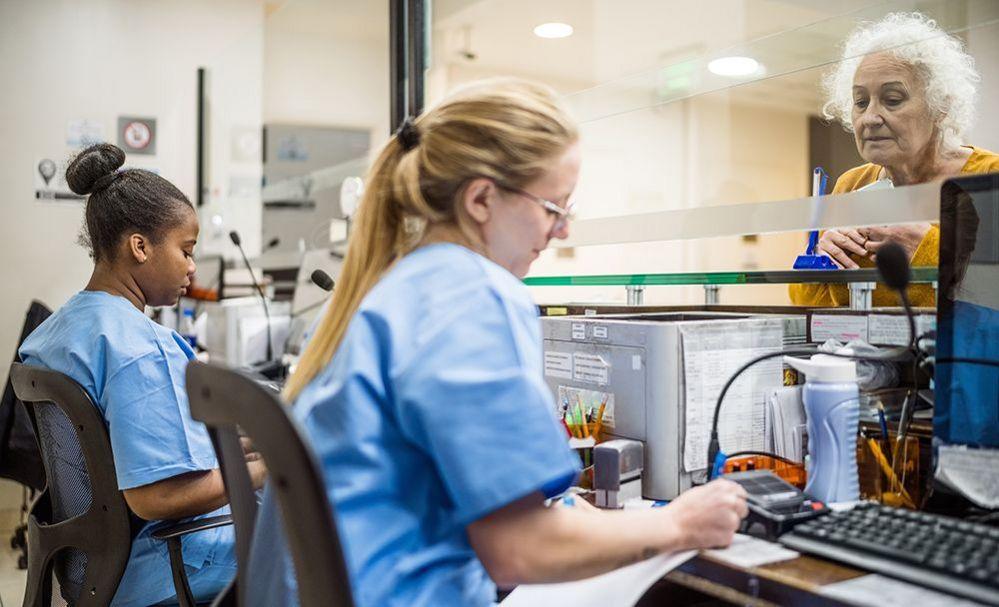NHS patient-safety system to be overhauled

- Published
The way patient safety is regulated and monitored is to be completely overhauled in England, the health secretary has announced.
Wes Streeting said the current system was "overly complex", as he set out a review of six key organisations.
It comes as further changes to the way the Care Quality Commission, the regulator of NHS services, operates have been unveiled.
The regulator, which inspects 90,000 different services across health and care, has been told to focus much more on key services such as hospitals, GPs and social care, after an interim report, in July, warned it was failing.
Since then, a new chief executive of the CQC - Sir Julian Hartley - has been appointed.
He currently leads NHS Providers, which represents senior health leaders, and is expected to take over at the CQC soon.
The six organisations to be reviewed are:
the CQC
the National Guardian's Office
Healthwatch England and local Healthwatch services
the Health Services Safety Investigations Body
the Patient Safety Commissioner
NHS Resolution
The focus will be on how these bodies work together, with the findings feeding into the government's 10-year plan for the NHS, expected in the spring.
Streeting said: "Patient safety is the bedrock of a healthy NHS and social-care system.
"That's why we are taking steps to reform the CQC, to root out poor performance and ensure patients can have confidence in its ratings once again.
"The government will never turn a blind eye to failure.
"An overly complex system of healthcare regulation and oversight is no good for patients.
"We will overhaul the system to make it effective and efficient to protect patient safety."
'Lacked focus'
The latest announcement coincides with the publication of the final report into the CQC review, led by Dr Penny Dash.
The CQC has been told to stop inspecting regional integrated-care systems, partnership bodies incorporating the whole health and care system in an area, and instead return to its original model of appointing chief inspectors to focus on individual areas such as hospitals, GPs and social care.
Dr Dash's interim reports said the CQC lacked focus, with inexperienced inspectors some of whom had never been into a hospital before, while some care-home inspectors had never met a person with dementia.
She also identified a backlog of inspections, with some hospitals not having been inspected for 10 years.
But there are no plans to replace the single rating system – outstanding, good, requires improvement and inadequate.
Matthew Taylor, of the NHS Confederation, which represents health services, welcomed the announcements.
The current model had "not been fit for purpose" for "far too long", he said.
The CQC said it was taking "rapid action" in response to the findings, including introducing ways to simplify assessments across different parts of the health sector.
It plans to appoint three new chief inspectors to regulate hospitals, GP surgeries and adult social care services.
The organisation's chair, Ian Dilks, said: "We are committed to rebuilding trust in CQC’s regulation and are taking action to make sure we have the right structure, processes, and technology in place.”